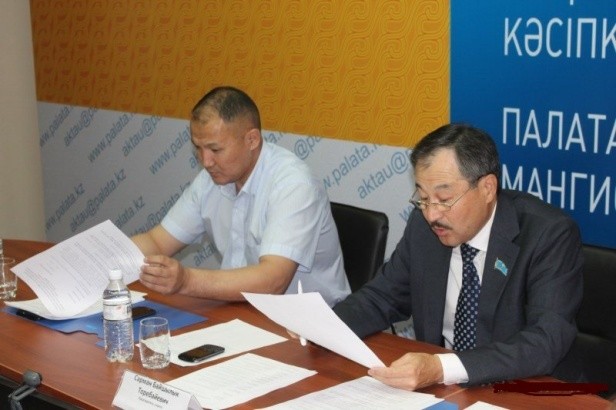
March 2015—Traditionally, western Kazakhstan has suffered from a lack of interaction between communities, government bodies and the oil companies operating there. In this vacuum, suspicion, hostility and increasing isolation thrived, increasing the potential for conflict.
Squalid living conditions and social inequality in western Kazakhstan, against a backdrop of highly-profitable oil and gas extraction operations, has been inciting public tensions and dissatisfaction with the government and oil companies. Lack of effective dialogue between communities, civil society, government bodies and large commercial investors has added to the tensions.
Through USAID’s Western Kazakhstan Community Dialogue Initiative, implemented by the locally based Civic Alliance of Mangistau Oblast in 2012, the social fabric is being strengthened in this volatile region, leading to a measurable reduction in social tensions.
The program focuses on strengthening key institutions to build bridges between communities, government and oil companies, and has generated notable success. It has helped local civil society organizations to better advocate for their constituents’ rights and to identify and mitigate potential sources of conflict, and trained local government officials to seek the input of civic groups, the private sector, and citizens in decision-making processes. Another focus of the program has been promoting community participation in designing, implementing and monitoring corporate social responsibility initiatives in target communities.
“The civil dialogue, including NGOs, is necessary if we want to become one of the top 30 most developed countries in the world,” said Zhandirbai Dospayev, director of the Mangistau Oblast Chamber of Entrepreneurs.
Civic Alliance successfully advocated for civil society representation on the Regional Entrepreneurs’ Council in January 2013, injecting new life into the previously moribund body which now has monthly meetings. As a member, Civic Alliance now enjoys the legal right to participate in policy and governance discussions equally with businessmen and government officials.
At the second meeting of the public council in May 2014, members considered a local businessman’s appeal of the government’s seizure of his farmland.
“… government officials do not support me as an entrepreneur, but hinder my work …. Now they want to take away the land that I’ve worked for years. If local government officials have their way, I will have to let 170 people go. What am I supposed to do with my animals—2,500 camels and 300 horses?” asked the entrepreneur, Aibek Kosuakov. With nowhere else to turn, he appealed to the Regional Entrepreneurs’ Council for help.
Civic Alliance President Zhaksygul Makhanbetova encouraged the Council to note the seriousness of the situation. After hearing from both the government and Kosuakov, the Council determined that local officials were guilty of serious violations, and recommended annulling the land seizure—a first for a body previously known for its passivity and inability to move beyond rhetorical statements.
The Western Kazakhstan Community Dialogue Initiative runs from October 2012 to March 2015.
LINKS
Follow @USAIDCtrAsia, on Facebook, on Flickr, on YouTube







Comment
Make a general inquiry or suggest an improvement.